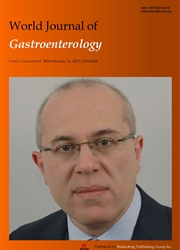

 中文摘要:
中文摘要:
Pancreatic cancer is one of the most common gastrointestinal tumors, with its incidence staying at a high level in both the United States and China. However, the overall 5-year survival rate of pancreatic cancer is still extremely low. Surgery remains the only potential chance for long-term survival. Early diagnosis and precise staging are crucial to make proper clinical decision for surgery candidates. Despite advances in diagnostictechnology such as computed tomography(CT)and endoscopic ultrasound,diagnosis,staging and monitoring of the metabolic response remain a challenge for this devastating disease.Positron emission tomography/CT(PET/CT),a relatively novel modality,combines metabolic detection with anatomic information.It has been widely used in oncology and achieves good results in breast cancer,lung cancer and lymphoma.Its utilization in pancreatic cancer has also been widely accepted.However,the value of PET/CT in pancreatic disease is still controversial.Will PET/CT change the treatment strategy for potential surgery candidates?What kind of patients benefits most from this exam?In this review,we focus on the utility of PET/CT in diagnosis,staging,and assessment of resectability of pancreatic cancer.In addition,its ability to monitor metabolic response and recurrence after treatment will be emphasis of discussion.We hope to provide answers to the questions above,which clinicians care most about.
 英文摘要:
英文摘要:
Pancreatic cancer is one of the most common gastrointestinal tumors, with its incidence staying at a high level in both the United States and China. However, the overall 5-year survival rate of pancreatic cancer is still extremely low. Surgery remains the only potential chance for long-term survival. Early diagnosis and precise staging are crucial to make proper clinical decision for surgery candidates. Despite advances in diagnostic technology such as computed tomography (CT) and endoscopic ultrasound, diagnosis, staging and monitoring of the metabolic response remain a challenge for this devastating disease. Positron emission tomography/CT (PET/CT), a relatively novel modality, combines metabolic detection with anatomic information. It has been widely used in oncology and achieves good results in breast cancer, lung cancer and lymphoma. Its utilization in pancreatic cancer has also been widely accepted. However, the value of PET/CT in pancreatic disease is still controversial. Will PET/CT change the treatment strategy for potential surgery candidates? What kind of patients benefits most from this exam? In this review, we focus on the utility of PET/CT in diagnosis, staging, and assessment of resectability of pancreatic cancer. In addition, its ability to monitor metabolic response and recurrence after treatment will be emphasis of discussion. We hope to provide answers to the questions above, which clinicians care most about.
 同期刊论文项目
同期刊论文项目
 同项目期刊论文
同项目期刊论文
 期刊信息
期刊信息
